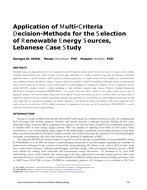An energy awareness, reinforced by government efforts to develop and conserve energy resources has been instilled in the minds of many Americans during the past several years. The conservation effort is proceeding in several major areas and one of the most important is conservation of the energy used to heat and cool buildings. It has been estimated that 20% of the energy used in the U. S. is for the control of building interior temperatures. There are over twenty million uninsulated or poorly insulated residential dwellings in the U.S. By insulating or retrofit insulating the walls and ceilings of a significant number of these homes, substantial energy savings can be realized. However it is necessary to determine what happens to the insulation materials once they are installed in the wall or ceiling for a significant period of time under various climatic conditions.
In the wall, insulation may be unseen but its insulating performance must remain effective for a period of time approaching the life of the house. Additionally, the insulation must remain compatible with the structural materials and not create conditions deleterious to the integrity of the dwelling or to the health of the occupants. Since substantial long-term energy savings will depend on the quality of these largely unseen insulations, because the health and safety of:dwelling occupants may be affected by these materials and because millions of dollars will be spent by home owners on insulation products, the in situ properties of the various thermal insulations must be determined.
In an attempt to determine possible aging or. other structural effects ina northern climatic regime, during the summer of 1977, samples of blown cellulose and urea formaldehyde foam insulations were taken from ceilings and sidewalls of a number of private dwellings in the Minneapolis and St. Paul, Minnesota metropolitan area. Observation-of the insulation materials in situ, plus inspection of the dwelling conditions and laboratory measurements of specific properties of the insulation materials were made.
Citation: Symposium, ASHRAE Transactions, Volume 85, Part 2, Detroit, MI
Product Details
- Published:
- 1979
- Number of Pages:
- 12
- File Size:
- 1 file , 600 KB
- Product Code(s):
- D-DE-79-03-2


